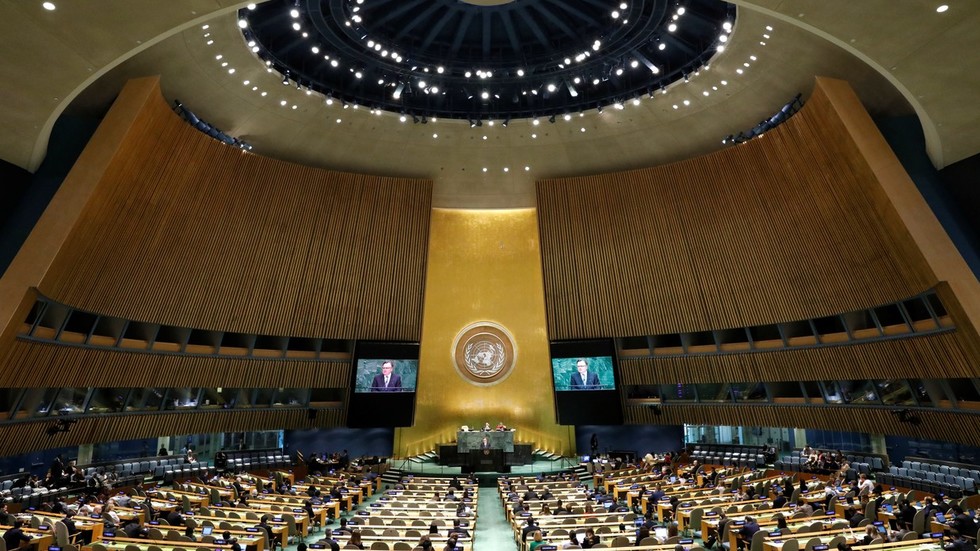Russia introduces draft UNGA resolution to save INF Treaty

In an attempt to salvage the cornerstone treaty limiting the deployment of nuclear missiles, which the US has decided to unilaterally suspend, Moscow has introduced a draft resolution to the United Nations General Assembly.
The US decision to leave the Intermediate-Range Nuclear Forces (INF) Treaty could seriously undermine international non-proliferation as well as arms control mechanisms, and would jeopardize world security, the Russian delegation said, presenting the draft to the UNGA.
ALSO ON RT.COMUS planned to ditch INF in advance, now seeks reason why it should – Putin on Pompeo ultimatum
The resolution urges the parties to engage in consultations on strategic issues and key points of concern, in the hope that constructive dialogue will not only lead to compliance with the treaty but pave the way for further efforts in global arms reduction. The document also calls for additional ‘confidence-building’ measures, and urges the international community to safeguard the INF treaty.
ALSO ON RT.COMUS tried to get classified data on Russian missiles with claims of INF Treaty violation – deputy FM
Washington has accused Russia of being in breach of the treaty and said it will unilaterally pull out in two months unless Moscow provides convincing evidence that it is compliant. While the US accuses Russia of building banned missiles, Moscow denies the claims and in turn says American missile defense systems in Europe, presumably designed to counter Iran and North Korea, could be used offensively against Russia. Moscow is also concerned about American heavy combat drones, which can perform the functions of ground-launched cruise missiles, in violation of the treaty.
ALSO ON RT.COMCuban crisis 2.0? Moscow eyes military bases in Cuba after US INF pullout
Russia has vowed to observe the INF treaty as long as the US does, and is trying to foster a dialogue to maintain the agreement. Signed between the US and the USSR more than 30 years ago, the non-proliferation treaty eliminated nuclear and conventional ground-launched ballistic and cruise missiles with ranges of 500 to 5,500 kilometers. The document, however, did not cover air- and sea-based missiles, nor did it involve any other parties, some of which have since developed their own versions of such weapons.

0 Comments:
Post a Comment
Subscribe to Post Comments [Atom]
<< Home